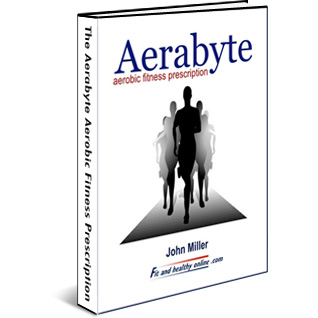Tracking your workouts is important. It probably seems like an unnecessary chore.
However, when you track your workouts you are essentially gathering data.
As you look back at your data, you’ll be able to evaluate your workouts. You can see areas where you’ve made great improvements and areas where you need to modify or change your workout approach.
Tracking your workouts is also a source of motivation and can help you identify when you’ve reached your goals.
What Do You Track?
When you’re tracking your workouts there are many different pieces of data that you can track. What you track depends on several factors. However, it’s often useful to track everything because sometimes the data can be surprisingly useful. First, let’s look at what you can track and why, and then we’ll explore the how.
Distance
How far did you run, bike, walk, or roller skate? You might track this information if you’re working up to a distance. For example, if you’d like to be able to run a marathon then you’ll track your distance and gain motivation and information as you gradually increase it.
Pace
Pace means that you’re tracking your speed over distance. For example, you might run a ten-minute mile now and your goal might be to run an eight-minute mile. So you’ll track how your pace improves as you get into better shape. You can track this for running, walking, bicycling and anything else that can be tracked over a distance. Indoor fitness machines work for both distance and pace as well.
Repetitions
If you’re doing strength training then you can track reps. You can also track reps for time. For example, the more often you train, the number of 100m intervals – running and walking –you can do in a se4ssion will increase – as will be time it takes to complete each intervals. Tracking gives you information and motivation.
Heart Rate
If you’re training for something or you want to keep your heart rate in a certain zone then you’ll track your heart rate along with the type of workout that you’re performing. There are now a wide range of measuring devices to track your heart rate, many connected by bluetooth to apps on your smart phone.
Calories
If you’re strictly looking for weight-loss results then tracking calories can be useful. You can compare calories burned with calories consumed and predict your weight loss. If your prediction is off, then you have information to help you resolve the discrepancy and figure out why. There ars bluetooth connected apps for tracking calorie use.
Time
Time is different from pace and can be used to track your workouts. When starting out you may only be able to jog for a minute before taking a breather. Over the weeks and the months as you get fitter you’ll be able to run for longer.
How to Track?
There are an abundance of options. You can use a fitness tracking tool like the FitBit to track your information. You can join an online service like FitDay.com to track your information. You can use a spreadsheet, either on your computer or on a sheet of paper.
You can track your workouts using the Aerabyte Fitness Training System, which includes the Fitness Tracka.

